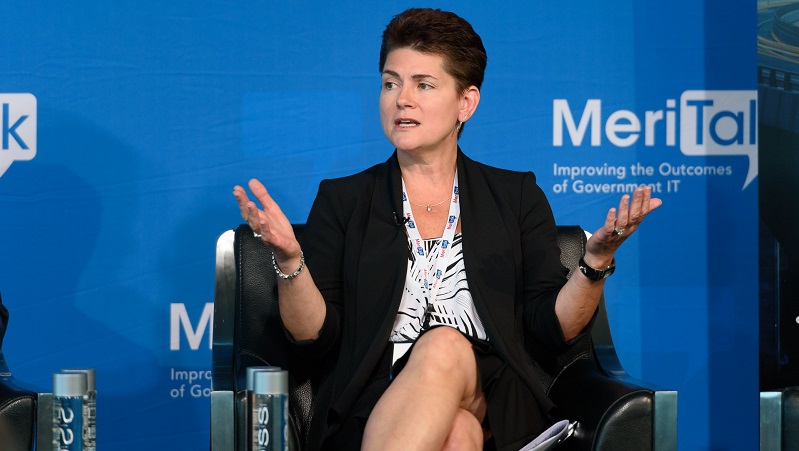
The COVID-19 pandemic has accelerated IT modernization and leveraged investments in cloud to keep agencies focused on the mission, which in turn is laying the groundwork for further modernization, said Maria Roat, Deputy Federal CIO, during a panel discussion today.
Speaking at GovernmentCIO Media’s Cloud Summit event, Roat noted that in her six months as Deputy Federal CIO, she has seen how the cloud has helped agencies adapt and scale to handle the challenges of the pandemic.
“The Federal Government went from Cloud First to Cloud Smart around its policies, and really laying the foundation,” said Roat. “When the pandemic hit, agencies were able to spin up. They were already deploying these cloud-based capabilities and they were very fast in implementing the COVID-19 response actions … benefitting from the cloud is really about allowing that scalability to happen.”
Roat also noted how the removal of bureaucratic barriers has helped agencies move with speed, and said she wants to see that fast pace continue.
“Agencies had, in some instances, capabilities in place or some pilot activities, and with the pandemic, those things they had planned for later shifted to the left and they were able to execute very quickly because bureaucracy got out of the way,” she said.
One area where Roat highlighted the benefits of cloud was in data sharing, both between Federal agencies and with partners at the state and local level.
“I think the interconnectivity of data between systems becomes table stakes,” she said. “Using APIs to connect cloud-based systems is needed to share the information … we can share data, but what are those things in the way of us sharing data? Are there conflicting regulations, conflicting policies? The cloud’s a great enabler – we can share data, we can put it in APIs and do all kinds of stuff with it, but we need to make sure we’re looking at some of the challenges around conflicting regulations around data.”
Cybersecurity is also a key area where Roat suggested cloud-based tools can add value, with knowledgeable staff and zero-trust architecture as a basis for secure cloud implementations.
“As we migrate to the cloud, we have to build out zero trust – what is that path to zero trust? And that is through every layer of your stack,” Roat said. “We need to make sure also that we’ve got the right people who understand the capabilities, understand the cloud, and understand security in a cloud environment,” she added.
